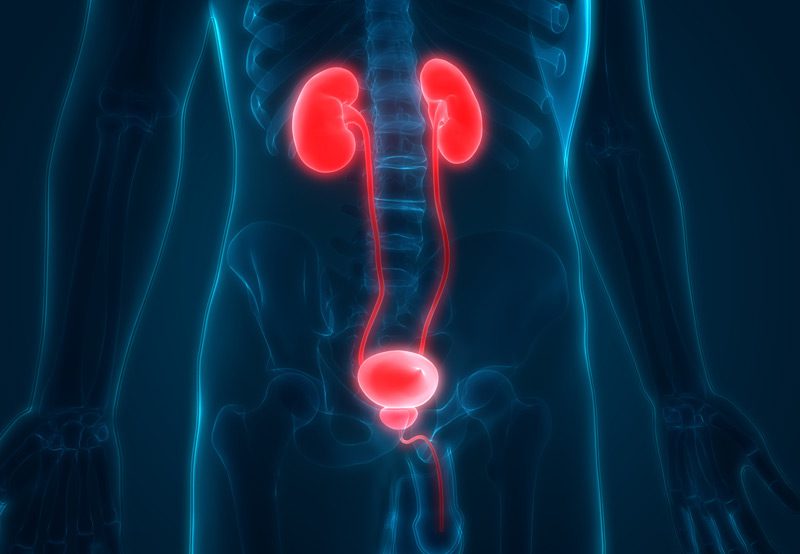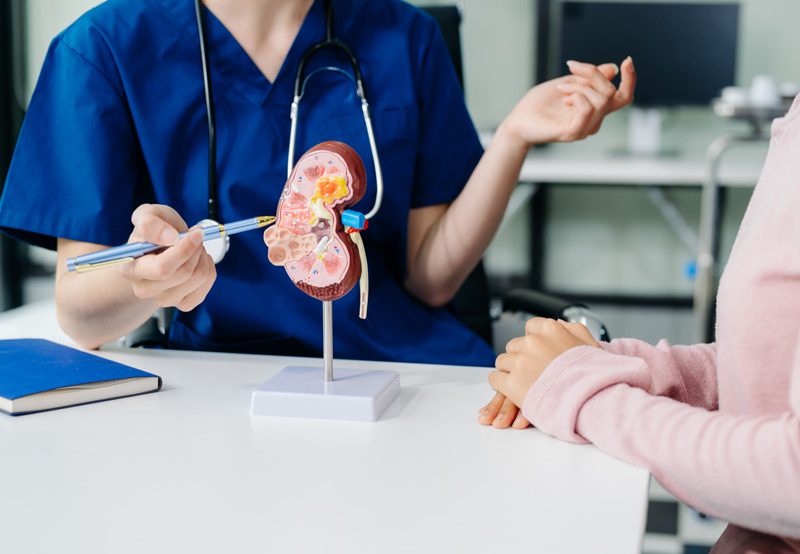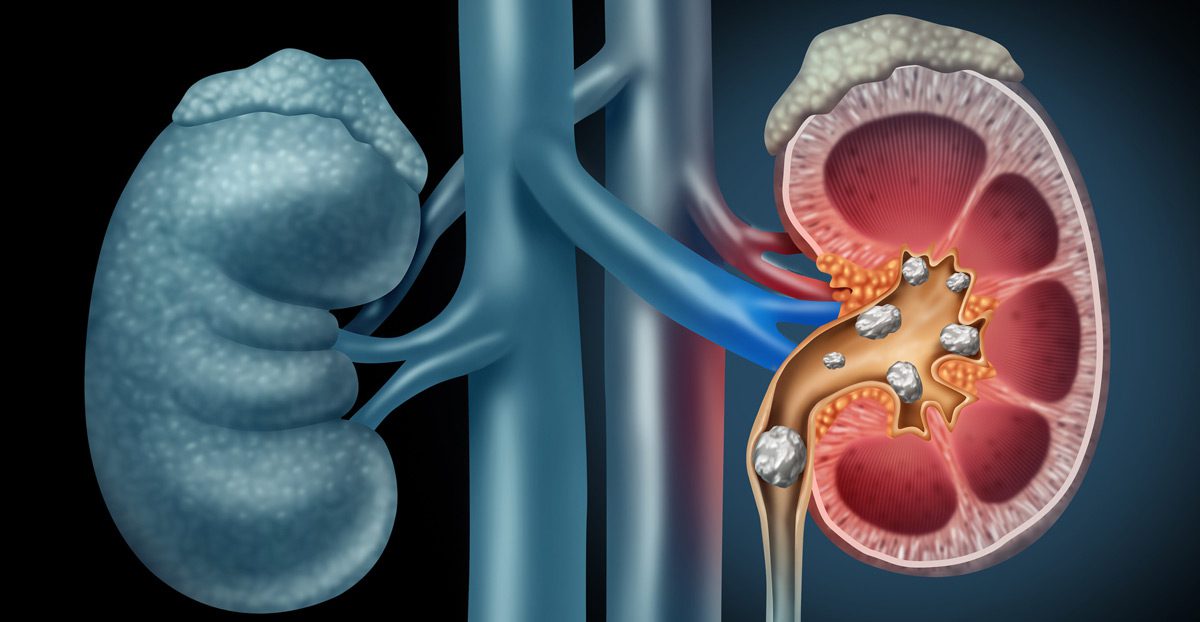

Kidney stones are hard mineral and salt deposits that form inside the kidneys and can affect any part of the urinary tract. They develop when the concentration of certain substances in the urine—such as calcium, oxalate, or uric acid—becomes too high, leading to crystal formation. These crystals can grow into stones that may remain in the kidney or travel down the ureter, sometimes causing severe pain and urinary complications.
Causes of Kidney Stones
Several factors contribute to kidney stone formation:
- Dehydration: Insufficient fluid intake concentrates urine, increasing the risk of crystal formation.
- Dietary Factors: High intake of sodium, oxalate-rich foods (like spinach or nuts), or animal protein can promote stone formation.
- Metabolic Disorders: Conditions like hyperparathyroidism or renal tubular acidosis may alter urine composition.
- Family or Personal History: Individuals with a history of stones are at increased risk of recurrence.
- Urinary Tract Obstruction: Slowed or blocked urine flow can create an environment conducive to stone development.
- Medications and Supplements: Certain diuretics, calcium supplements, and other medications can increase stone risk.

Symptoms
The presence of a kidney stone may not cause symptoms unless it moves into the ureter and causes obstruction. Common symptoms include:
- Sudden, severe flank or abdominal pain
- Pain that radiates to the groin or lower abdomen
- Nausea and vomiting
- Blood in the urine (hematuria)
- Frequent or painful urination
- Urinary urgency
- Fever and chills if infection is present
Diagnosis
To confirm the presence of kidney stones and determine their size, location, and impact, a urologist may use:
- Non-contrast CT Scan: The most accurate and commonly used imaging tool for detecting stones.
- Ultrasound: A radiation-free alternative, often used for initial evaluation or in pregnant patients.
- X-rays: Can detect some types of stones, but is less sensitive than a CT scan.
- Urinalysis: Checks for blood, infection, and crystal types in the urine.
- Blood Tests: Evaluate kidney function and detect elevated calcium or uric acid levels.
Treatment Options
Treatment depends on the stone’s size, location, and associated symptoms:
- Conservative Management: Small stones (<5mm) may pass on their own with increased fluid intake and pain management.
- Medical Expulsive Therapy: Medications like alpha-blockers can help facilitate stone passage.
- Shockwave Lithotripsy (SWL): Uses external shockwaves to break stones into passable fragments.
- Ureteroscopy with Laser Lithotripsy: A small scope is passed into the ureter to visualize and fragment stones.
- Percutaneous Nephrolithotomy (PCNL): Minimally invasive surgical removal of large or complex kidney stones.
- Preventive Measures: Long-term strategies may include dietary changes, increased hydration, and medications to alter urine chemistry.
Next Steps
If you’re experiencing symptoms of kidney stones or have a history of stone formation, schedule an evaluation with a urologist. Timely diagnosis and treatment are essential for relieving pain, avoiding complications, and preventing recurrence. A personalized prevention plan can significantly reduce your risk of future stones.
